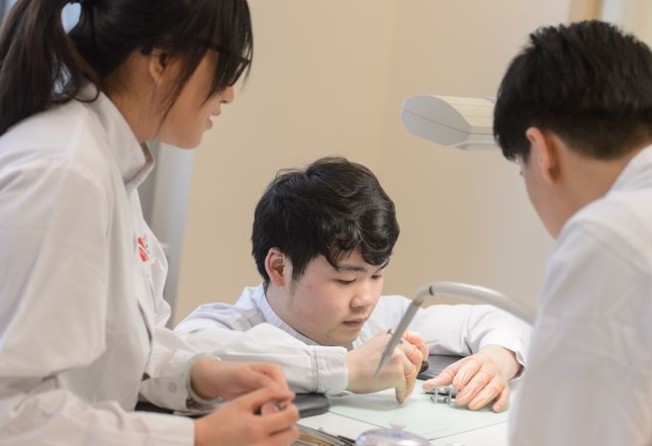Nurturing a new breed of specialist craftsmen

Switzerland is famous for the precision and craftsmanship that goes into top-quality timepieces. Less known is the fact that many of those skills and techniques are also being passed on to students in Hong Kong.
"With the constant expansion of the Swiss watch market, particularly in Asia-Pacific, our aim is to develop a new breed of highly skilled specialists to fulfil increasing industry demand," says Franck Martin, principal of the Hong Kong Institute of Swiss Watchmaking (IOSW).
"Our graduates are equipped to pursue a promising career, essentially involved in the repair and restoration of brand-name Swiss watches or working for retailers, locally or overseas."
Established in 2009 and based in Lai Chi Kok, the institute runs a certified watchmaking course that takes two years, entails 3,000 hours of tuition and practice, and is taught on a full-time basis.
Also known as WOSTEP (Watchmakers of Switzerland Training and Educational Programme), classes are mainly in English, with Cantonese as supplementary language. Teachers emphasise the direct link between the theoretical aspects and practical skills. Having no more than six in a class is seen as ideal.
"This ensures we can provide the best learning resources and that each student gets individual attention," Martin says. "Our classrooms are equipped with state-of-the-art workshop and pedagogical equipment."
The admission criteria for prospective students include having a passion for watchmaking, being "sincerely motivated", showing mechanical aptitude and understanding, and having good eyesight.
"We look for people who are naturally patient and can maintain concentration for long periods," Martin says. "They should have steady hands to manipulate small, delicate mechanisms and handle components by means of specialised tools."
The 600 or so hours of formal teaching cover the traditional technology of micromechanics and key aspects of professional watchmaking. There are daily sessions to master the essential techniques, adding up to about 2,400 hours of practical training. Attendance is mandatory, with eligibility to take the intermediate and final exams dependent on completing the minimum number of classroom hours.
"The direct link between the teaching of theory and putting it into practice on a daily basis is very important," Martin says.
Standard fees of HK$60,000 include tuition, textbooks, the required uniform of slippers and gown, and a laundry service. There is no age limit for prospective applicants and while previous experience may help, it is not expected. It is essential to have a reasonable level of written and conversational English.
"We are now willing and able to attract students from different parts of the Asia-Pacific," Martin says. "All candidates, though, will be carefully and objectively assessed for their ability to be successful in the programme and to adapt to the culture of the working environment."